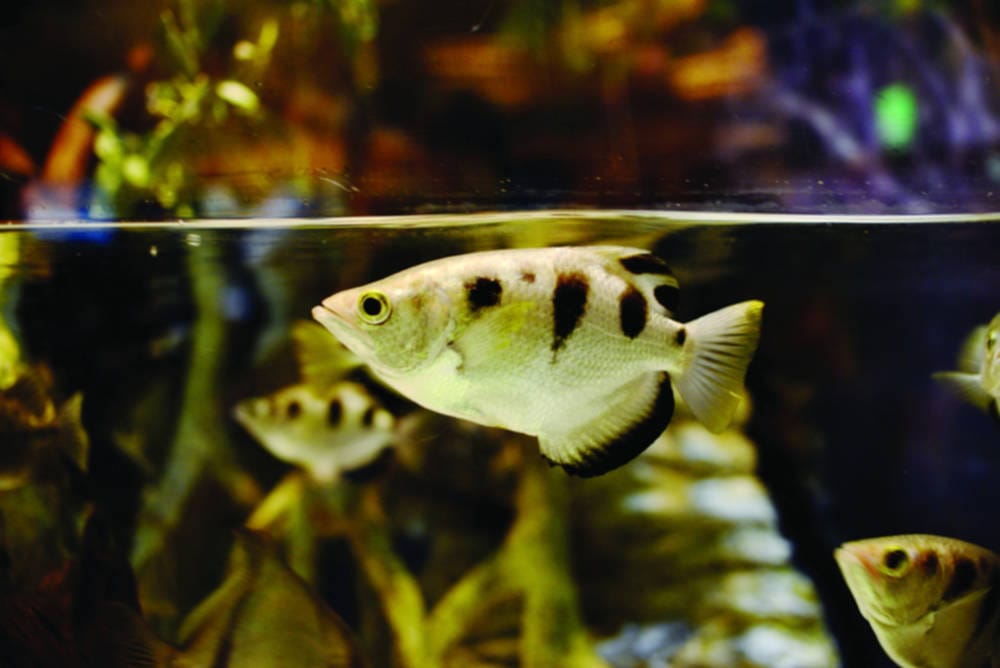Sh!t Sc!ence
Lonely fishkeepers vidicated: fish can tell when you’re being a dick

At Sh!t Sc!ence, we want to show that every science paper is a drop of water that, in its small way, helps fill up the aquarium of human knowledge, so that us little humans can float around happily oxygenated by the water of cognition. This week, you may have guessed, we are talking about fish.
Have you ever had one of those annoying friends with an aquarium who will swear that their fish recognises them? ‘Look how he presses up against the glass! He knows his mommy!’ they’ll say.
Well I have, and it took everything in my power to contain the powerful urge to roll my eyes so far back into my skull that they might not find their way back to the front of my head. But actually, science has recently proven that they might have a point.
This study, emerging from the University of Oxford, was published in Scientific Reports this week. Scientists presented a tropical fish with pictures of human faces, and asked the fish to react to the pictures. These fish, archerfish (Toxotes chatareus), are known to hunt aerial prey by projecting water at high speed to knock them out, so it was easier for the scientists to train the fish to learn to hate one face, and spit in its direction whenever they was presented to it.
Surprisingly, the fish were capable of recognising one face out of 44 different pictures. This worked even if features such as hair and face shape were removed, showing that fish can, indeed, recognise the finer traits of a face.
Now, of course, the results of this study go further than simply vindicating the legions of crazy fish owners. It’s about how we recognise faces as humans.
Face recognition is paramount for humans to establish proper social skills. This skill was long thought to be reserved to humans, as the capacity to discriminate faces was found to be hosted in the fusiform gyrus, located in the neocortex of the human brain. Facial recognition had previously been identified in non-human mammals, such as dogs, sheep and cows, but it could be argued that those animals had evolved to recognise faces as a consequence of domestication.
The premise of this article was to investigate whether an animal which had no reason to have evolved to know human faces, such as a fish from a tropical area, could learn to do so, even when those animals lack a neocortex. These results show that facial recognition is not a human trait, and do not require a brain the size of a human’s.






